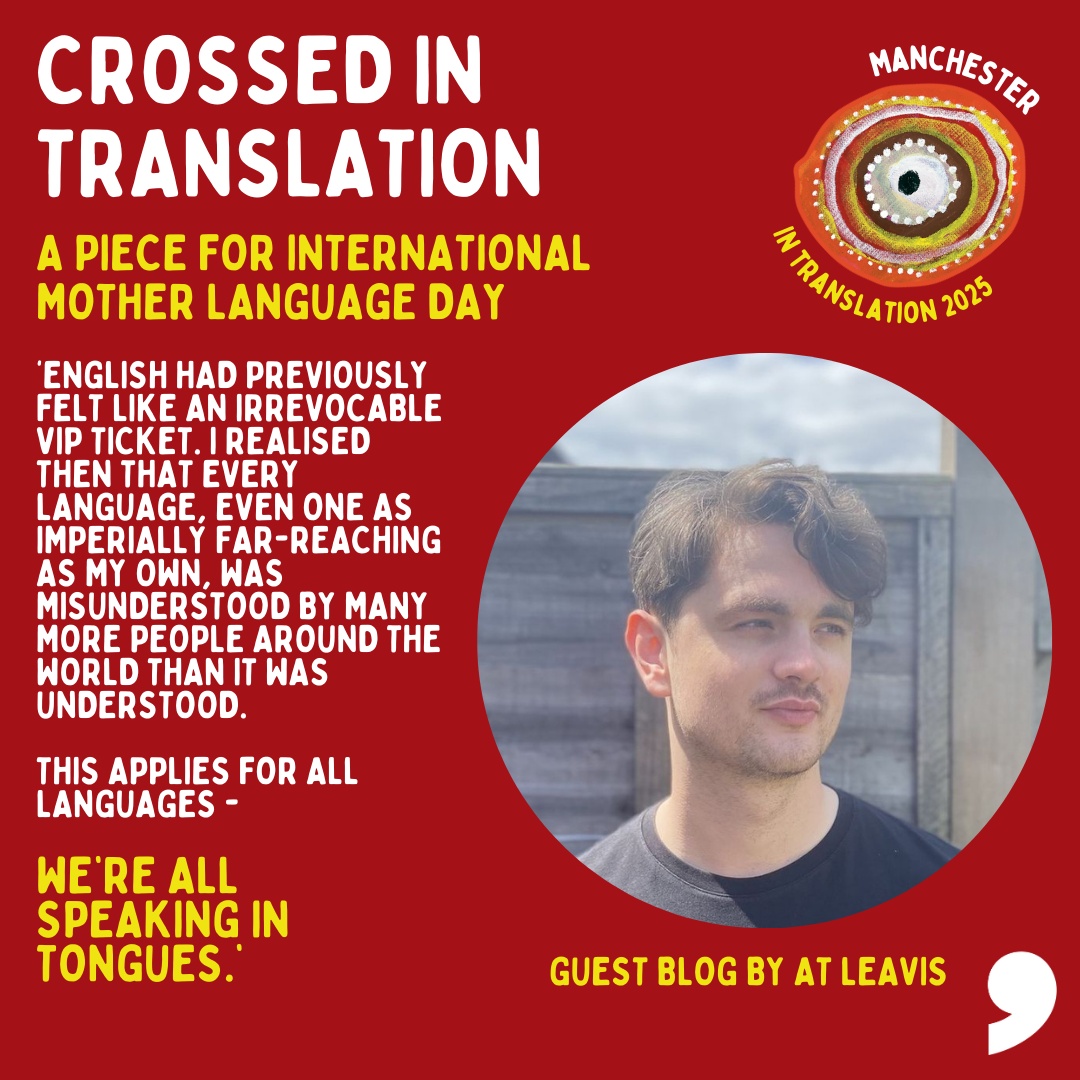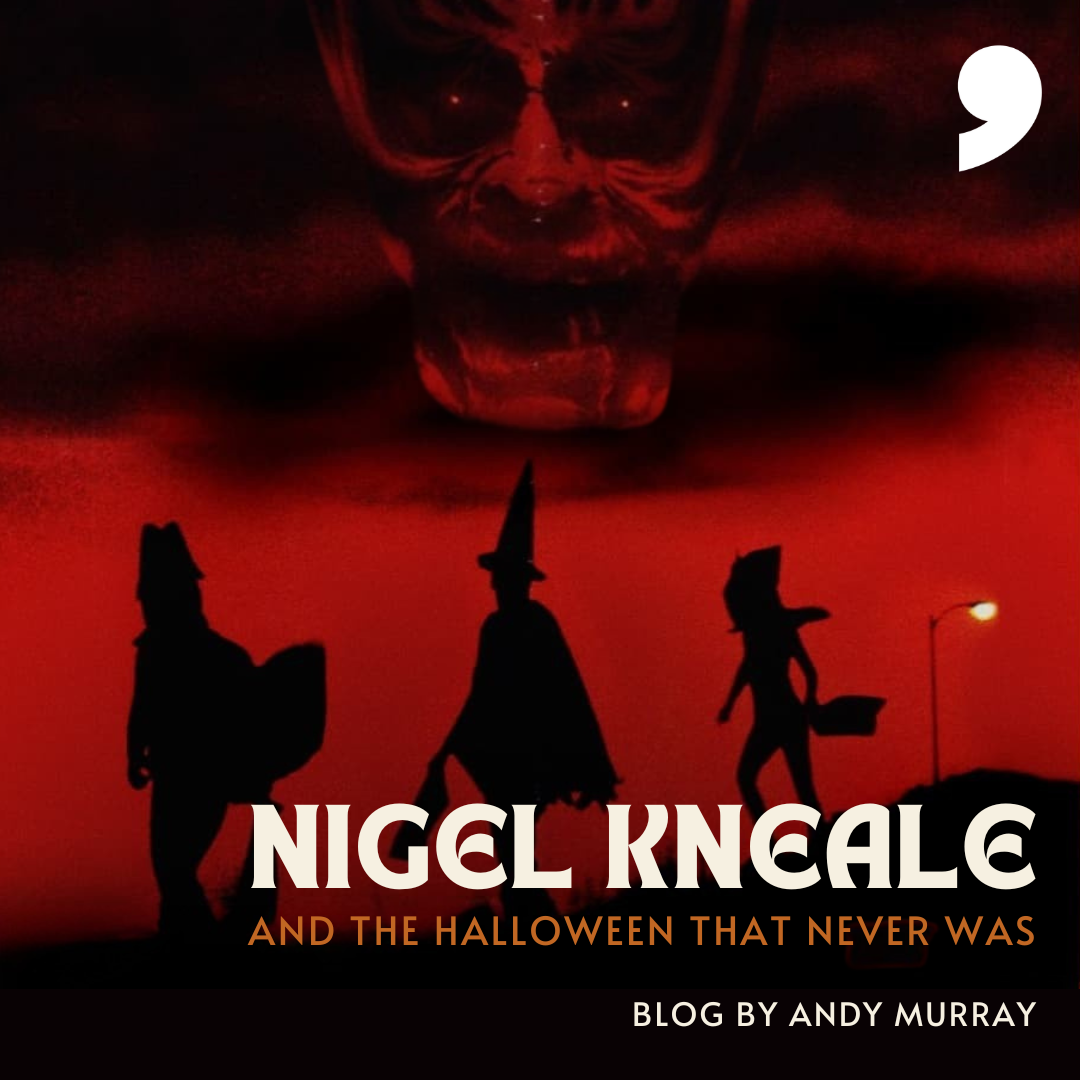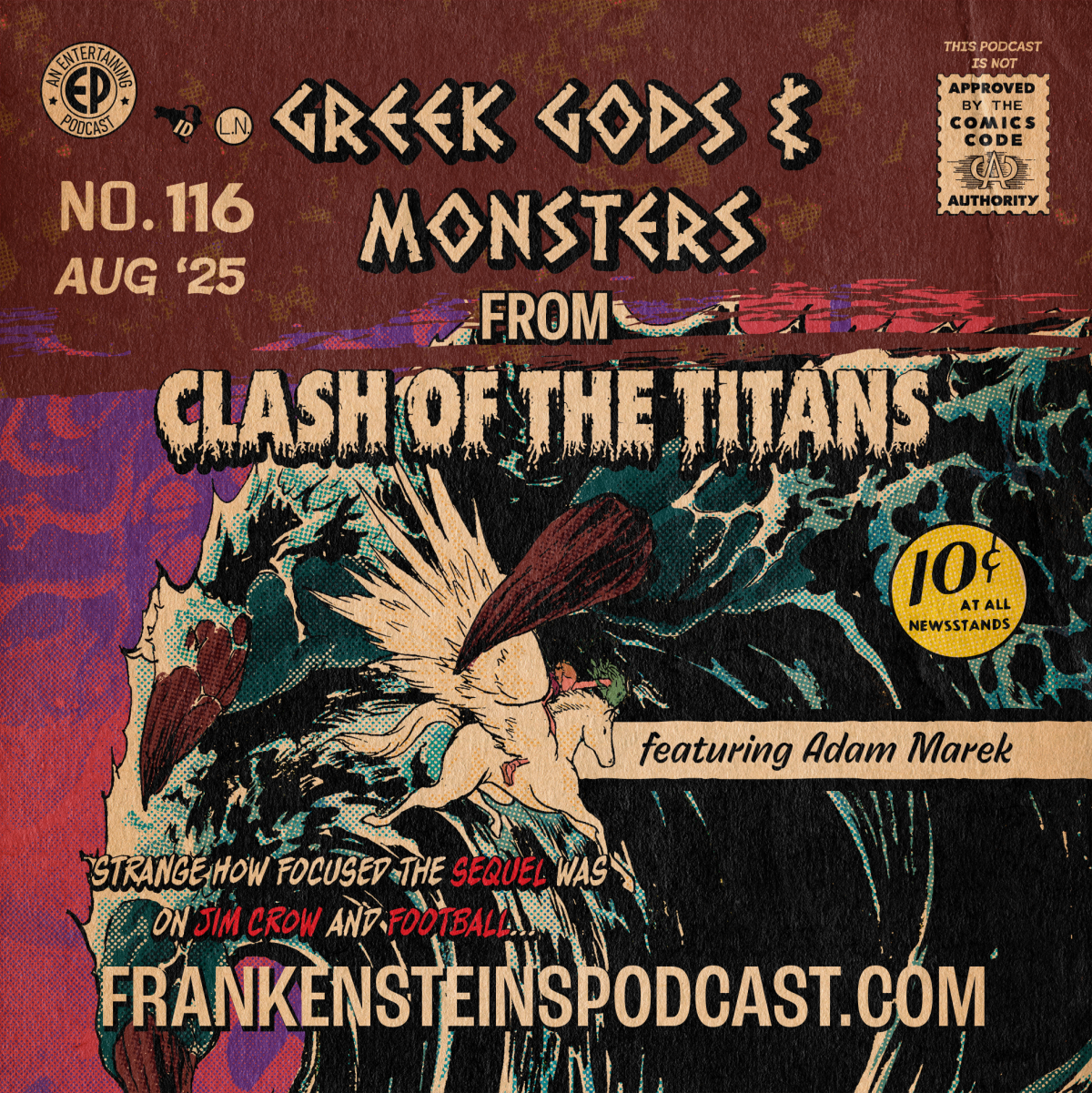Crossed in Translation
AT Leavis explores the often overlooked role of translation in history, from religious schisms to naked presidents. Find out how you can get involved in translation events below..
One day, on an otherwise humdrum tube journey, I squinted between the haircuts to read one of the ‘Poems on the Underground’ series - Anthony Joseph’s Axe. It’s a stirring character sketch of his Trinidadian father, a man who lives within storms, and in it he describes the man battening down the hatches as a hurricane rolls in: ‘He crossed his chest with appointed finger / and hissed a prayer in glossolalic verse.’ As I took the escalator up to Holborn, that word glossolalia starting bouncing around my head. Γλῶσσα, ‘glossa’, is the ancient Greek for ‘tongue’, and so glossolalia is the practice of speaking in tongues. And it does its job perfectly - the word rolls around your mouth, the tip of the tongue flicking three times against the hard palate.
Glossolalia is that moment of godly inspiration, or hotheaded delusion, when a spirit appears to seize the reins of the voice. You can see countless variations on Youtube, nervous believers shutting their eyes or letting them roll back into their heads, squeezing their nails into their hands with concentration. There’s something in this which can feel very uncomfortable when we oh-so-secular types hear what seems to be furious babbling. But that feeling is the same shadow in our nature which we have to overcome when we hear any language which we don’t understand.
I used to have halting conversations with my first partner’s Iranian dad. He had some English, I had shamefully little Farsi; months later I’d be coughing up Laphroiag and ordering car parts with him on eBay. But there was a chasm to get across beforehand, intimidating for a teenager whose English had previously felt like an irrevocable VIP ticket. I realised then that every language, even one as imperially far-reaching as my own, was misunderstood by many more people around the world than it was understood. This applies for all languages - we’re all speaking in tongues.
And so the work of translators is the work of ambassadors. History balances on their quills. In the early 16th century, Erasmus and his many humanist peers first engaged fully with the realisation that St. Jerome’s vulgate translation of the Bible, which had condemned many to fire or salvation, was just that - a translation. It had come to Latin via Greek, often itself rendered from Hebrew; a copy of a copy, each decision compounding. Amusingly, Jerome had decided that Moses did not have a ‘flashing face’ when coming down from the mountain, but a pair of magnificent horns. Centuries of art, including a breathtaking marble sculpture by Michelangelo, depict the prophet looking both very portentous and also a bit like a goat.
But the consequences were deeper: when John the Baptist had cried out in the wilderness, Jerome had interpreted the Greek metanoeite as meaning that his followers must take action, to do penance, whereas Erasmus read this as inducing them to come to their senses and change their minds. Action vs inner faith: this was one of hundreds of points of contention once scholars began questioning Jerome’s translation, and so the battle lines began to be drawn between tradition and scripture, wrenching Europe into factions. From listening to words, the focus turned to interpretation. The west, through a process of fury, became a place of multiplied points of view.
Jerome wasn’t a failed translator - words just don’t couple themselves up as perfectly as we might like. The Greek words agápē, érōs, philía, philautía, storgē, and xenía, for example, are all distinct concepts which we funnel down into our single concept of love. And to mistranslate love is to leave yourself bare. When Jimmy Carter visited Poland in 1977, his interpreter declared that the President desperately wanted to have sex with the country. The commander-in-chief tried to say that he was happy to be in Poland, but this became ‘happy to grasp at Poland’s private parts’. ‘I left the United States this morning’, meanwhile, turned mysteriously into ‘I left the United States, never to return’, leaving the Poles, we might imagine, a little nonplussed at the scale of the American libido.
Several Presidents later, we need pluralism more than ever, and we might begin by understanding how inter-knitted our languages are. Now Arabic is one of the fastest growing languages in Britain, and while the right might wring their hands, its influence is hardly new. ‘Rediscovering’ Aristotle in Islamic Andalusia sparked an early renaissance in Christian philosophy. As monks translated from Arabic, to Spanish, to Latin, they also magicked Arabic words into the English mind - algebra, coffee, zenith, and a crucial word which Roman numbering had been missing: zero. Without zero it would have been difficult for international trade to blossom, and Europe would have zero Zero Gravity, zero Zero to Hero stories, and zero Zero Tolerance.
The great thinkers of the Islamic Golden Age, like al-Fārābī, Avicenna, and Averroes, were fed on Greek knowledge, and their advances were fed back into Europe. Choosing their translations was important and fraught with danger, like walking between two tall cliffs across a windblown rope bridge. And our crutches like DeepL and Google Translate, for all their claimed objectivity, are choosing where to build that bridge, as well. But why not embrace the fact that translation is an imperfect art and embrace a little ambiguity? When Bob Dylan was asked if he got frustrated when fans didn’t ‘get’ his lyrics, he answered, ‘what’s wrong with a little misunderstanding?’
That’s all to say, in my own winding, glossolalic way, that International Mother Language Day is something worth chattering about. We only need translation because we still have a breadth of cultures, each with their own eclectic treasures. If our century is to have its own Tower of Babel, it won’t exist in a universal language rendered by algorithm (another Arabic word), but in the many meeting places around us, places of warmth and contact, of which Manchester has plenty. Translations, these places of contact, inch us closer to one another, and they point us towards the untranslatable, a place beyond language. As Coleman Barks and John Moyne translated from Rumi:
Out beyond ideas of wrongdoing and rightdoing,
There is a field. I'll meet you there.
When the soul lies down in that grass,
The world is too full to talk about.
If you've ever considered a career in translation, or if you just find literary translation interesting, why not join us at Manchester in Translation 2025, held at the University of Manchester Students' Union on February 19th. Open to all, regardless of language experience! Tickets just £3 or free if you book directly.
AT Leavis is a Nottingham writer of poems, stories and non-fiction, who won a Young Creative Award and Lille's Independence poetry competition in 2024. He is also the Literary Editor for LeftLion Magazine.



